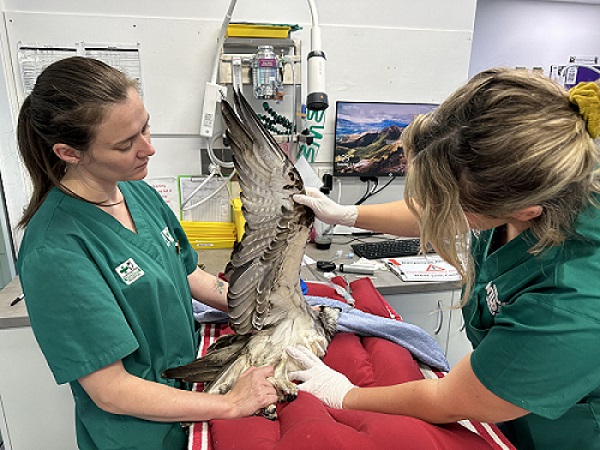Hope for Snickers to Soar this Spring!

Snickers the Osprey was reported ill, and it was later discovered that this poor bird had swallowed a hook. During spring and school holidays, people spend more time outside boating and fishing, so education is important now more than ever.
Rehab for patients like Snickers can take months and can be a traumatic experience for our wildlife. Hooks are usually removed using an endoscope, which is a flexible tube with a camera attachment, otherwise surgery is required.
The good news is that it can easily be avoided with some simple actions.
- Dispose of your rubbish correctly
- Don’t feed birds while fishing as it encourages them to hang around and increases their chances of being caught in lines or swallowing hooks
- Don’t cast your line near birds
- Safely pick up discarded fishing hooks and lines when you see them
- If wildlife is hooked or entangled, don’t cut the line
- If you see an animal with a fishing hook or line injury, immediately seek help by calling Currumbin Wildlife Hospital on (07) 5534 0813 or your local wildlife organisation
The patients that are lucky enough to be rescued by kind members of the public require expensive treatment and rehabilitation at Currumbin Wildlife Hospital.
Currumbin Wildlife Hospital offers this free service to all Australian wildlife and that’s why it’s so important to donate and spread awareness about this wonderful work.
The cost of removing a hook from a pelican’s stomach is $3000 and without this community service it would be a slow and painful death in the wild for our precious wildlife.
Human impact is the biggest threat to native Australian wildlife, so it is up to us to make a positive difference. Education can reduce unnecessary suffering while also taking the pressure off our vet team.
Help us save wildlife from human impact by donating today.
